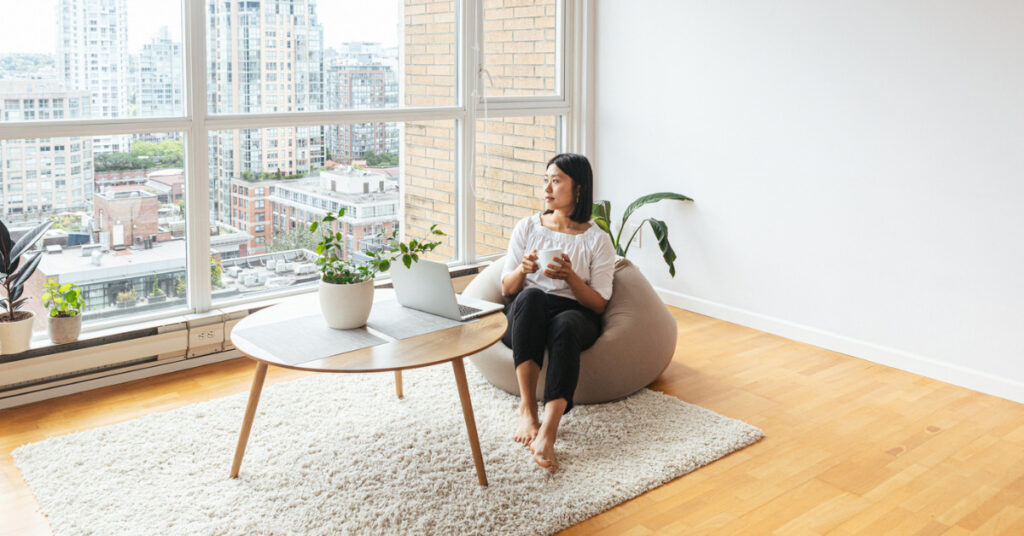Education & Career Trends: August 29
Curated by the Knowledge Team of ICS Career GPS

- Article by Mark Travers, published on psychologytoday.com.
Minimalism is a lifestyle philosophy that emphasizes the intentional reduction of material possessions and the simplification of one’s physical and mental space. It is mainly a response to the excessive consumerism and cluttered environments that have become prevalent in modern society. In general, minimalism has been found to have a profound impact on mental health, promoting a sense of calm, clarity, and overall well-being.
For instance, an article published in the Journal of Positive Psychology suggests that there are definite psychological advantages to adhering to a philosophy of minimalism and voluntary simplicity. The lead author, Joshua Hook of the University of North Texas, comments, “We often get caught up in going after ‘more’ — for example, more money, a bigger house, a fancier car, etc. — thinking it will make us happy. But studies have shown that reducing your consumption and lowering your focus on material goods was actually related to more happiness.”
Here are five ways in which minimalism can positively influence your mental health:
1. Better Mood
- Our environment plays a significant role in determining the status of our mental well-being, and living in a cluttered space can be overwhelming.
- When you eliminate physical clutter, you also experience a reduction in mental clutter, which can uplift your mood.
- In a study published in Personality and Social Psychology Bulletin, a home environment free from clutter and disorder may contribute to a more positive emotional state.
- The bare necessities approach of minimalism can help people keep their living space stress-free, taking away a big chunk of anxiety and work they previously worried about.
- This also relieves brain space to pursue other activities that are more enjoyable than straightening up one’s house.
2. Better Focus and Productivity
- When we surround ourselves with fewer possessions, we minimise the chances of being overwhelmed or sidetracked by unnecessary items.
- This intentional reduction of physical clutter creates a clearer and more organised environment, enabling us to concentrate on our priorities.
- Asaf Mazar, a behavioural scientist at The Wharton School at the University of Pennsylvania explains that a cluttered environment can create figurative “friction,” which refers to the overstimulation and distractions that hinder positive behaviour.
- To reduce this friction, it is important to eliminate minor distractions that interfere with focus.
- With fewer distractions vying for our attention, we can direct our energy and mental resources toward the tasks that truly matter.
3. Financial Security
- By adopting a minimalist mindset, we become more aware of our actual needs versus our wants.
- This shift in perspective empowers us to make informed decisions about our purchases, distinguishing between essential items and unnecessary indulgences.
- When we curb impulse buying and avoid unnecessary expenses, we save money and allocate our resources more wisely.
- We become more intentional about our financial choices, prioritising investments that align with our values and long-term goals.
- Thus, mindful spending can not only prevent wastefulness but also cultivate a greater sense of financial security and freedom.
4. Lowered Loneliness
- According to a study published in the Journal of Consumer Research, when individuals equate success with material accumulation, they may feel compelled to constantly acquire and display possessions to validate their achievements.
- This emphasis on material success can inadvertently isolate individuals from meaningful social interactions, as the pursuit of possessions takes precedence over building and nurturing relationships.
- As a result, these people may ultimately end up feeling lonely.
- When you cut back on the constant pursuit of material possessions, you get to invest more time and energy in nurturing relationships, building social connections, and finding fulfilment through human interaction.
5. Greater Sense of Well-Being
Simplifying our lives and reducing clutter can create a space that promotes tranquillity and harmony. Living in an environment that is free from excessive belongings allows us to appreciate the beauty of simplicity and be more present in the moment.
For instance, a study published in the International Journal of Applied Positive Psychology found that individuals who embraced minimalism reported experiencing a range of positive impacts on their overall well-being. The study identified five key themes:
- Autonomy
- Competence
- Mental space
- Awareness
- Positive emotions
These findings reinforce the idea that intentional and mindful approaches to consumption and possession can have positive effects beyond just making your day-to-day life a little easier. Not having to worry about accumulating more things can broaden your horizon and create meaningful changes in your worldview as well.
…
Have you checked out yesterday’s blog yet
Nine 10-Minute Daily Habits That Will Change Your Life
(Disclaimer: The opinions expressed in the article mentioned above are those of the author(s). They do not purport to reflect the opinions or views of ICS Career GPS or its staff.)
Like this post? For more such helpful articles, click on the button below and subscribe FREE to our blog.




One Reply to “5 Ways Minimalism Can Benefit Your Mental Well-Being”